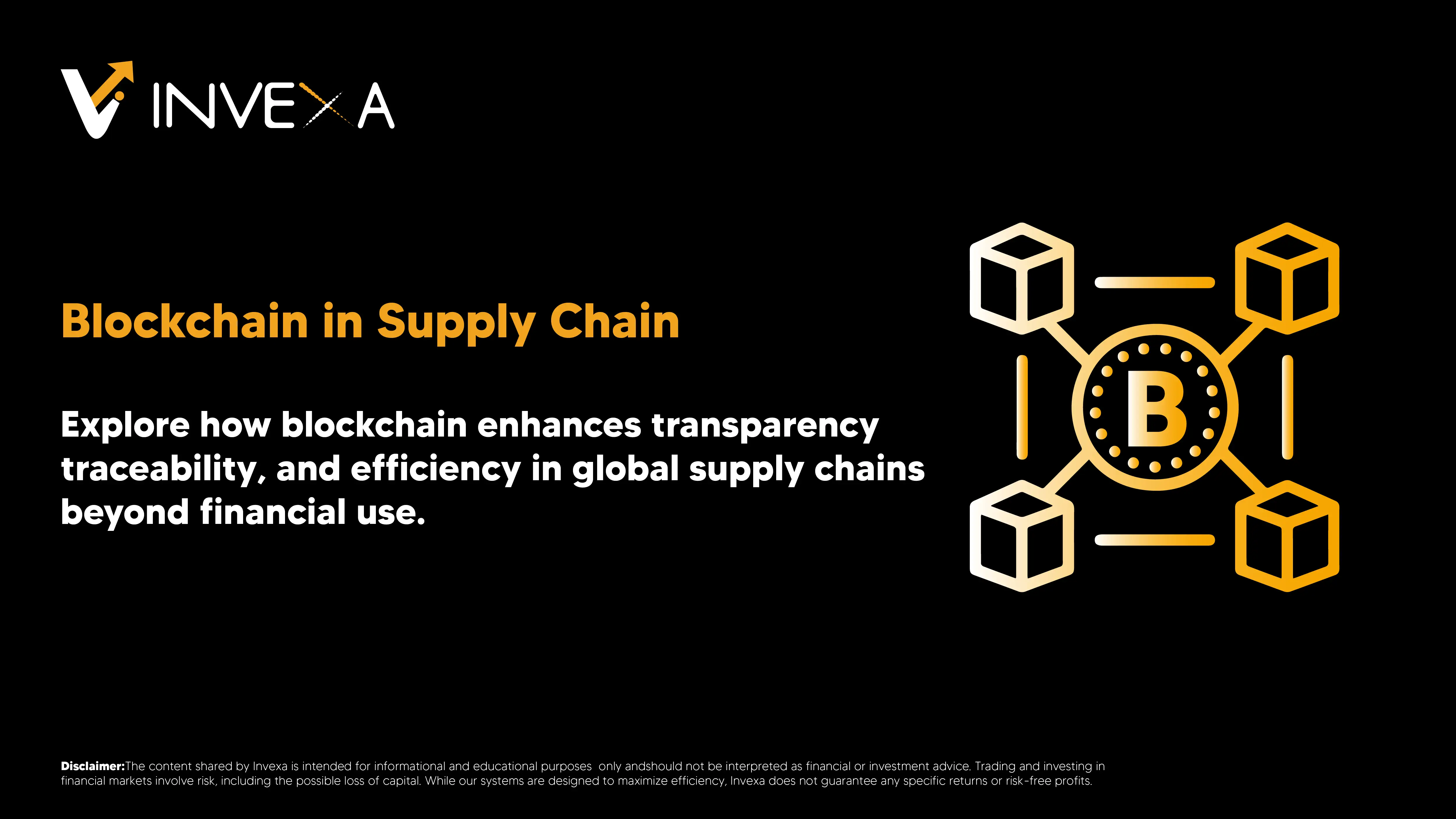
Explore how blockchain is revolutionizing supply chains with enhanced transparency security and efficiency. Learn how businesses use this technology to track products reduce fraud and streamline operations for a more reliable supply chain.

When most people hear "blockchain," the first thing that probably comes to mind is cryptocurrency like Bitcoin or Ethereum. But what if we told you that blockchain has a much broader application especially in industries like supply chain management? Let’s break it down in simple terms.
At its core blockchain is a digital ledger. It’s like a huge secure notebook where information gets recorded. Each page in this notebook is a block and each time a new piece of information is added it’s linked to the previous page (block). This creates a chain of blocks hence the name blockchain.
The beauty of blockchain is that it's decentralized, meaning no single person or company owns it. Instead it’s distributed across many different computers making it very secure and difficult to tamper with. This is why it’s not just great for digital currencies but also for many other applications like tracking goods in the supply chain.
So why does blockchain matter for supply chains? In simple terms it can make tracking goods from point A to point B more transparent efficient and secure.
Every time a product changes hands in a supply chain whether it's shipped stored or moved it gets recorded on the blockchain. This gives every stakeholder (like suppliers manufacturers and consumers) a clear tamper proof record of where that product has been.
For example imagine you’re buying a diamond. Using blockchain you could trace the diamond’s journey from the mine to the retailer. This helps eliminate fraud and ensures ethical sourcing like confirming that a product wasn’t made using unfair labor practices.
Supply chains can be complex with multiple parties involved in producing and delivering a single product. Mistakes can happen and sometimes fraud can slip through the cracks. Blockchain eliminates these risks by offering an immutable record of each step in the process.
For instance if a product is reported missing or damaged during shipping blockchain records every event leading up to that moment. This helps pinpoint where the issue happened reducing the chances of fraud and saving businesses a lot of time and money.
Traditional supply chains often rely on paper records and outdated systems which can slow things down. Blockchain can speed things up by automating processes through "smart contracts." These are self executing contracts where the terms are written directly into lines of code. For example when a shipment reaches a certain destination a smart contract could automatically trigger payment.
This reduces the need for intermediaries (like banks or insurance companies) and cuts down on paperwork which in turn makes the entire supply chain faster and more cost effective.
One of the key strengths of blockchain is its security. Each block is connected to the previous one making it incredibly difficult to alter any part of the chain without being noticed. For supply chains this means sensitive information like shipment details or payment records is protected from hacking or fraud.
For example if you’re dealing with high value goods like electronics or luxury items blockchain can ensure that the data about those goods remains secure throughout their journey.
Blockchain isn’t a perfect solution and it's not going to replace traditional methods overnight. There are challenges like the need for more widespread adoption and potential regulatory hurdles. However, it’s clear that blockchain offers huge potential for transforming supply chains making them more transparent secure and efficient.
In the coming years we’ll likely see more industries adopt blockchain technology as it helps them build trust with customers reduce fraud and streamline operations.
Blockchain in supply chain management is about more than just finance or cryptocurrency. It’s about making the entire process from production to delivery more transparent secure and efficient. Whether you’re buying groceries or high end electronics blockchain has the potential to change the way we think about the products we buy and the journey they take to get to us.
If you’re in the supply chain industry or just curious about the future of technology it’s worth keeping an eye on how blockchain will continue to evolve and reshape the way businesses operate.